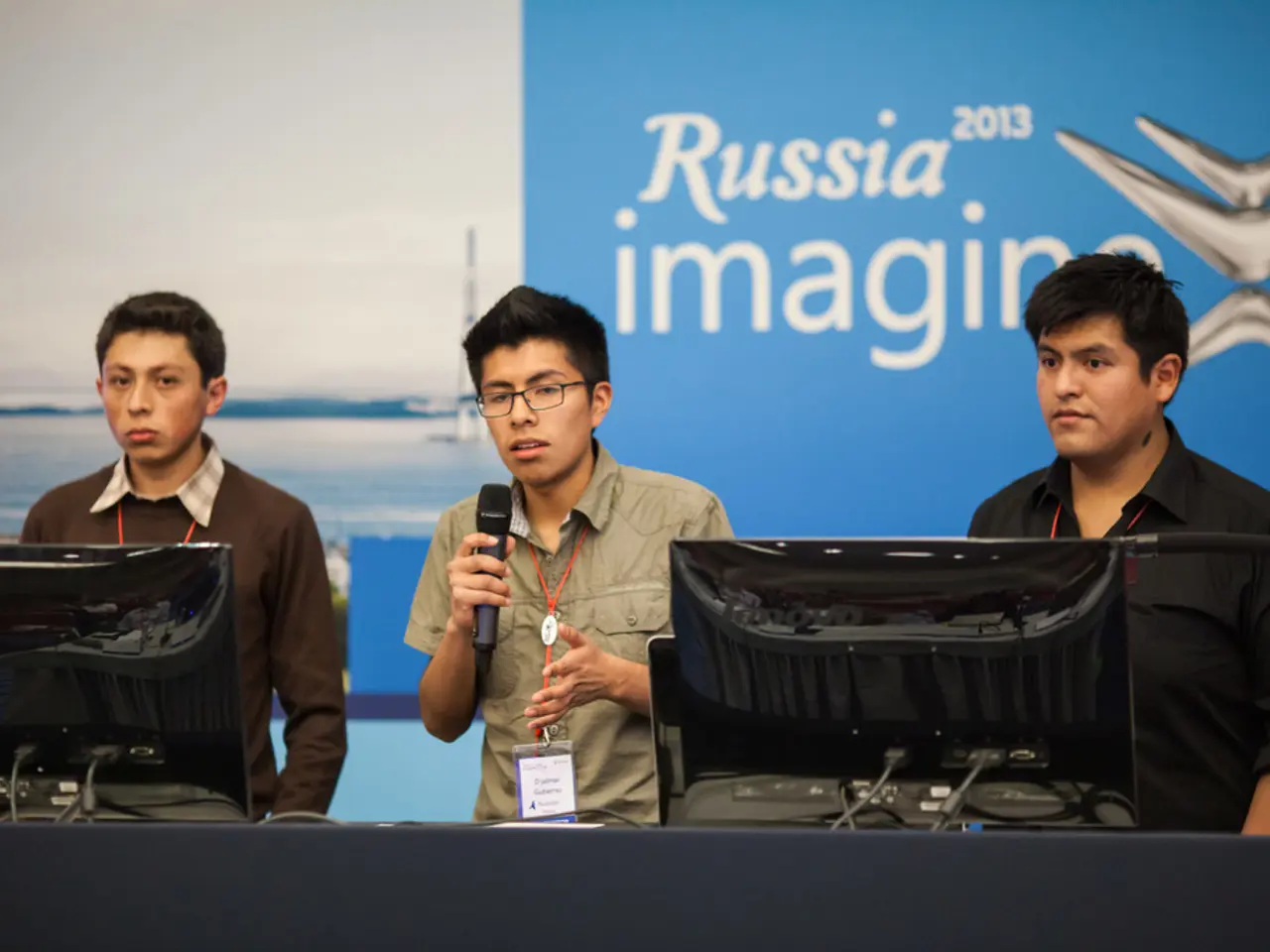Designing with inclusivity in mind is essential for bringing banking services to Nigeria's unserved and unconnected population
In the heart of West Africa, Nigeria is making significant strides in promoting digital inclusivity, ensuring that everyone, regardless of their location, literacy level, or disability, can participate in the digital revolution. This push for inclusivity not only benefits social good but also promises long-term growth for companies.
One key aspect of this drive is the adaptation to local voices and dialects. For many Nigerians, particularly commercial drivers and those with lower literacy levels, the inclusion of Pidgin or indigenous languages can significantly improve user experience. This is evident in navigation apps like Google Maps, which introduced the Naija accent in 2019, catering to the diverse linguistic landscape of the country.
Behind this drive for digital inclusivity is Olufemi Ayandokun, a senior product designer passionate about accessibility and digital inclusion. His work, along with numerous other initiatives, is helping to bridge the digital divide in Nigeria.
Government-private sector partnerships, such as the one between the Federal Government and Jumia Nigeria, are playing a crucial role. Jumia's E-Commerce in Rural Areas initiative, for instance, uses pickup stations, a nationwide logistics network, and local sales consultants to connect more Nigerians, even those outside urban centers, to digital commerce opportunities.
Digital financial inclusion programs, particularly those targeting women-led micro and small enterprises, are another key initiative. Platforms like SmartBiz incorporate USSD functionality to serve non-smartphone users, addressing barriers related to device access and literacy. The initiative also includes business skills and digital financial capability training, group support, mentorship, and incentives to improve credit access and usage among low-literacy entrepreneurs.
Capacity building and training efforts, such as the collaboration between ISACA and INGRYD Academy, aim to train 10,000 aspiring tech professionals over five years, strengthening Nigeria’s digital talent pipeline. This indirectly benefits marginalized groups by creating more inclusive tech solutions.
Community-driven digital inclusion projects, like the Digital Communities Project led by Tech4Dev and ATC Nigeria, have been working for six years to bridge the digital divide and equip disadvantaged populations with digital skills and access.
Lastly, the Nigeria Digital Identification for Development Project seeks to establish secure digital identities for all Nigerians, improving service delivery and digital access, especially for those in rural areas or informal sectors who often lack formal identification.
Together, these initiatives combine infrastructural expansion, tailored digital financial services, skills training, and digital ID provision to promote inclusive digital participation for vulnerable groups in Nigeria. The integration of USSD functionality, local e-commerce access points, and continuous skill-building are particularly important in overcoming low literacy and disability-related barriers.
As the digital landscape continues to evolve, it's crucial for designers and developers to think beyond urban, tech-savvy users to make digital platforms accessible. Investing in accessibility at the early stages of product development can help a product reach a larger customer base and increase revenue. Similarly, government agencies should promote accessible digital services to ensure that no one is left behind in Nigeria's digital revolution.
On a separate note, Africa's top founders, creatives, and tech leaders will gather at the Moonshot event in Lagos on October 15-16. Early bird tickets are available with a 20% discount.
[1] Jumia Nigeria's E-Commerce in Rural Areas initiative: https://www.jumia.com.ng/about-us/e-commerce-in-rural-areas [2] SmartBiz platform: https://www.smartbiznigeria.com/ [3] ISACA and INGRYD Academy collaboration: https://www.isaca.org/newsroom/isaca-ingyd-academy-partnership-to-train-10000-nigerian-tech-professionals [4] Digital Communities Project: https://www.tech4dev.org/digital-communities-project [5] Nigeria Digital Identification for Development Project: https://www.nigeriaid4d.gov.ng/
1.Startups like SmartBiz are addressing the digital divide in Nigeria by incorporating USSD functionality, catering to non-smartphone users and providing business skills training for low-literacy entrepreneurs, thereby promoting digital financial inclusion.
- In the realm of education and self-development, collaborations between organizations like ISACA and INGRYD Academy aim to train 10,000 aspiring tech professionals over five years, creating more inclusive tech solutions and strengthening Nigeria’s digital talent pipeline.
- To foster lifestyle improvements and technology adoption among underserved populations, community-driven projects such as the Digital Communities Project by Tech4Dev and ATC Nigeria equip disadvantaged groups with digital skills and access, bridging the digital divide and promoting inclusive digital participation in Nigeria.




